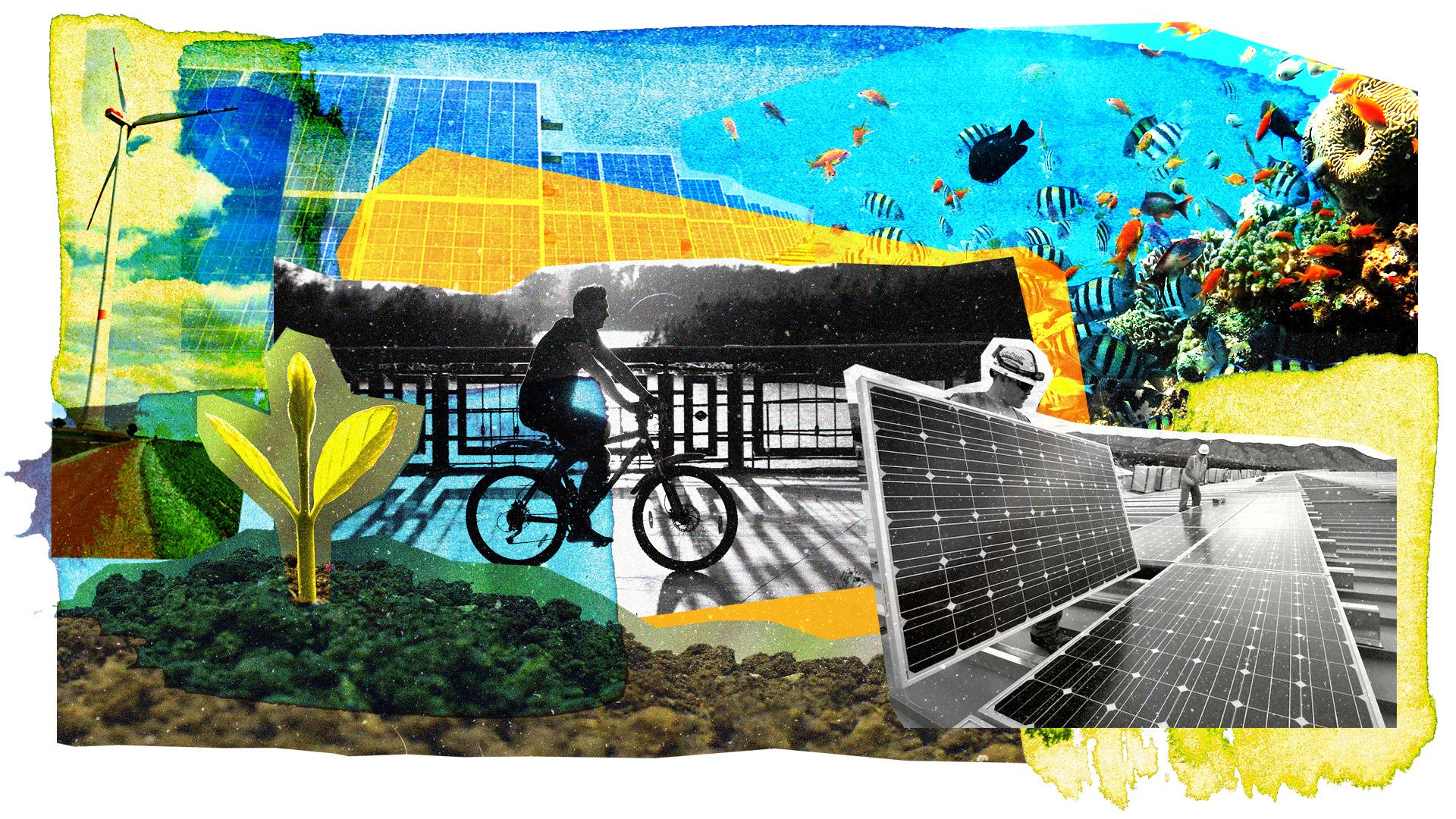Fires. Floods. Hurricanes. Heatwaves.
It can be easy to feel helpless in the face of planetary disruption, particularly with a global pandemic that is — understandably — distracting many from the generational challenge of climate change. But there is an enormous transformational opportunity at hand.
The need to build back after COVID-19 offers an opportunity to work toward cleaner and more resilient societies that can grow with fewer emissions, create broadly shared opportunities in a low-carbon economy, and heal the planet. Governments are spending massively to stimulate the economy, including forms of green stimulus, and many around the world are demanding that we don't just re-build, but build back better. This is a task that no single country can bear on its own; indeed, addressing climate change and sustainability challenges is the ultimate focal point for reimagining multilateralism in the 21st century. It requires that companies and governments take chances, invest and innovate, and share their learnings with the world. But it also requires global cooperation, including new coalitions of unconventional partners that each hold one part of a complex solution.
Scientists agree that to avoid the most destructive impacts of climate change and preserve the ecosystems upon which our societies depend, our economies must achieve net zero emissions by 2050, if not earlier. A growing chorus of voices across the public and private sector are making big net-zero commitments and inducing others to follow suit. But as the world enters a pivotal decade, commitments must be transformed into actions. Governments must come forward with bold new climate policy frameworks, companies must develop new tools, and the prolific volume of data being generated around the world must be harnessed to unlock new insights and strategies. Working together, recovery from the crisis can lead to a world that is greener, cleaner, and safer for generations to come.
What's the UN doing about it?
The UN has been the leading forum for multilateral efforts to address climate change via the 2015 Paris Agreement. The Paris Agreement harnesses a bottom-up, non-binding approach, using the power of transparency and peer pressure to get countries to make various climate action commitments, and then to revisit these commitments and ratchet up ambition every five years. Even if all Paris commitments were fulfilled, the world would still be on track for around 3 degrees of warming, underscoring the importance of increasing ambition, learning from others, and lowering the cost of decarbonization through innovation and cooperation. The 2020 UN climate conference, to be hosted by the UK in Glasgow, was postponed to 2021 due to the COVID-19 pandemic, and represents a critical juncture, as it will be the first official opportunity to take stock of current commitments and increase them where possible.
The UN is also a critical venue for dealing with other environmental priorities, including biodiversity — a critical foundation of today's modern pharmaceutical industry and a linchpin of the molecular diversity needed to fuel the development of new drugs and vaccines. World leaders were scheduled to meet in Kunming, China this October to negotiate the text of a new global treaty on biological diversity, but this too has been postponed to 2021 because of Covid-19. Nevertheless, this year's UNGA is critical in aligning key countries around a common strategy to better protect biodiversity in the 21st century.
How are others trying to help?
A diverse coalition of businesses, countries, cities, states, and other actors are stepping up ambition. There is a diverse mosaic of private sector efforts underway around the world to increase climate ambition, including the Transform to Net Zero coalition, a cross-sector initiative of leading businesses that are working to help companies of all sizes enter the race and reach net zero global emissions no later than 2050.
Because "net zero" doesn't mean that there will be no emissions, but instead that any residual emissions are balanced out by strategies to actively remove greenhouse gases from the atmosphere, it is imperative to begin advancing so-called "negative emissions" strategies and technologies today. Microsoft, for example, has pledged to become a carbon-negative company by 2030, and is currently accepting proposals for novel carbon removal innovations that it can finance through its $1 billion Climate Investment Fund that is making investments across a range of areas, including waste, carbon, and water.
And over September 21-27, the world's largest and most inclusive climate summit — Climate Week — will unite the world virtually to discuss how to make a just transition to a net zero future a core pillar of the world's recovery from COVID-19
What's needed next?
Even the most innovative leaders can't bend the emissions curve, nor protect the most vulnerable populations and systems from the ravages of climate change, alone. Public-private collaboration toward standardized carbon accounting and data sharing can help companies seize decarbonization opportunities, and can help governments better decide what and how to regulate. Better data transparency and sharing of both successes and challenges from first-mover companies and countries can help expose the largest levers of change and compel others to action, including through the Transform to Net Zero coalition.
Meanwhile, governments can work together to price carbon pollution, and to advance frameworks for cooperation across various carbon markets. Countries can discuss how various post-war institutions, such as the global trading system, can be revamped so that climate action is a source of cooperation, rather than competition and protectionism. And public-private cooperation can be introduced to enhance decision making around environmental management as the world adapts to a more volatile climate.
How can I get involved?
- Use a sustainability calculator to help your workplace better understand the carbon implications of its cloud usage.
- Check out the UN's "Race to Zero" campaign and see how you can become an official partner.
- Learn more about the math behind net zero commitments.
